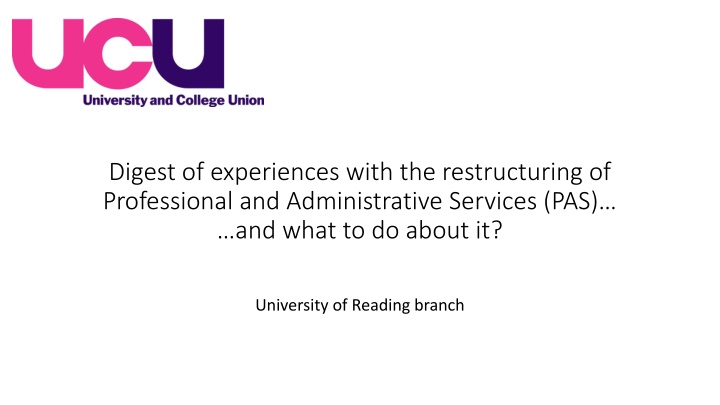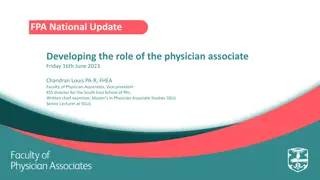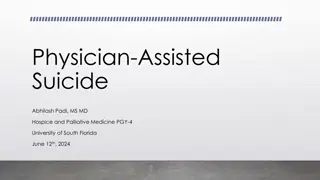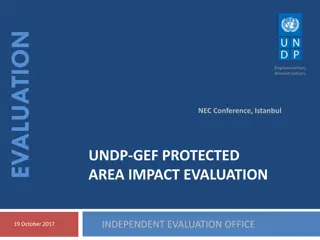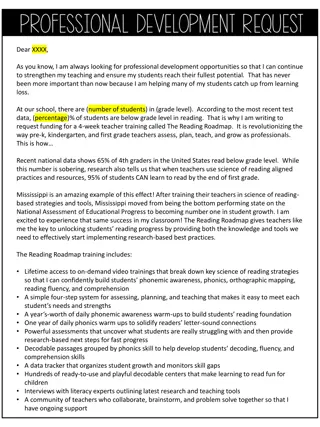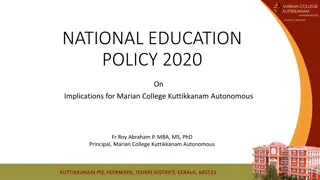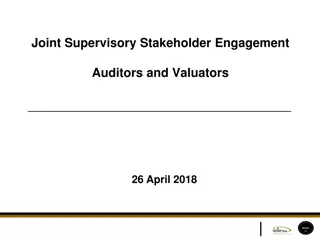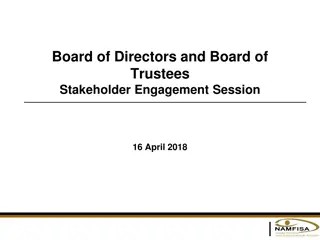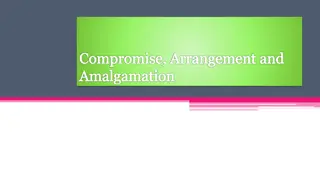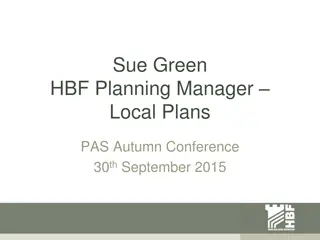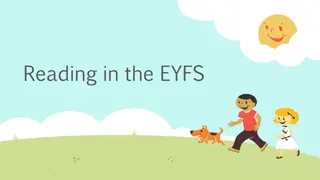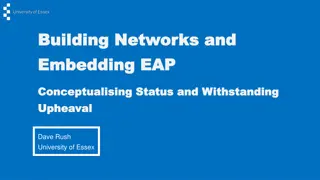University of Reading PAS Restructuring Experiences
Impactful restructuring of Professional and Administrative Services at the University of Reading led to consequences such as knowledge drain, disorientation, and ongoing challenges in workflow and collaboration. The restructuring aimed to save costs but resulted in demotivated staff, disassociation from academic departments, and administrative chaos. Understand the complexities and repercussions of such organizational changes to strategize effectively for the future.
Download Presentation

Please find below an Image/Link to download the presentation.
The content on the website is provided AS IS for your information and personal use only. It may not be sold, licensed, or shared on other websites without obtaining consent from the author.If you encounter any issues during the download, it is possible that the publisher has removed the file from their server.
You are allowed to download the files provided on this website for personal or commercial use, subject to the condition that they are used lawfully. All files are the property of their respective owners.
The content on the website is provided AS IS for your information and personal use only. It may not be sold, licensed, or shared on other websites without obtaining consent from the author.
E N D
Presentation Transcript
Digest of experiences with the restructuring of Professional and Administrative Services (PAS) and what to do about it? University of Reading branch
Brief account Rationale: Part of larger Efficiency and Effectiveness Programme (Note: about 30 million spent on PWC external consultancy for this Programme) PAS aimed to save staff costs (surprise, surprise ) Note: Previously Unite and Unison branches derecognised, replaced with staff forum (HR initiative) Restructuring affected Finance, HR, Marketing, Technical Services, Teaching and Learning as well as Student Support, Executive Support Restructuring and consultations took place during academic year 15/16, first year running with new structures 16/17 Voluntary redundancy scheme offered, taken by just over 200 staff with an average length of service at the University of 13 years New structures with new job roles at risk notices to individual staff, fast-track application for the newly created roles
Brief account In parts more jobs on lower grades (esp. Finance) Creation of line management hierarchies more jobs than previously on higher grades (!) Sold as exciting career progression opportunities for admin staff that previously didn t exist Set about creating new workflows and processes for two years, massive drain also on academics time who were obliged to feed information into massive spreadsheets and in numerous meetings Aimed at standardisation not equally suitable for range of activities and disciplines; makes it harder for anything structurally less typical Re-fragmentation e.g. T&L support still School- and subject-based, but less contact/collaboration with academic departments
Consequences Drain of institutional knowledge and experience Downgraded/demotivated academic-related staff New staff in new roles without established ways of working, disassociated from academic departments, high staff turnover in some areas Disorientation; disruption in vital flow of information e.g. student course changes, difficulty in figuring out who deals with what, work previously done by admin colleagues left uncovered At least one year of administrative chaos, especially Finance (affecting e.g. Principal Investigators) and T&L support (affecting Programme Directors, Personal Tutors) Ongoing adjustments and development of processes = drain on resources
Consequences Issues raised in feedback that we had from colleagues on the ground - Problems caused by lack of technicians (in the sciences!) and porters - Change in tone e.g. new line managers in the new admin support structure which had to be seen to be working well; rather than mutual support, new phenomenon of putting blame on colleagues - Several problems noted with the finance department, payments not going out, requests not dealt with etc. - Problems with timetabling, allocating personal tutors down to things like ordering printing paper.
Scope for action Local committee and wider University community: Rational arguments cost of disruption, of admin work picked up by academics, of negative student experience , of staff dissatisfaction, drain of knowledge and experience etc. Question rationale behind the exercise: Have staff internally been consulted over ideas to optimise working patterns/structures or how to make savings? Have students and academic colleagues been consulted over their (dis-)satisfaction with the current administrative structures? Does the University community have any say in what works well and what works not so well currently? Or is the exercise based only on financial modelling (but then see above) Scandalise press, external stakeholders, create case study from previous restructuring experience? Reading staged and delivered Vote of No Confidence in Vice-Chancellor
Scope for action Protest and resist symbolic events? e.g. Reading s 90s birthday celebration protest; letter to Council; petition (incl. students!); pledge to work to contract to not pick up loose ends? Strike action? Insist on/persist with accountability, negotiate stream of accounting in advance? (But useful more for criticism after the event ) Local union committees: Negotiation and consultation to mitigate consequences for staff (e.g. pay protection period for staff moved onto lower graded roles); UCU from the start stated to oppose ANY compulsory redundancies! UCU nationally: E.g. investigate consultancy activity and spending on HEI campuses (Reading UCU motion carried at congress 2017), compile evidence from such exercises that contradicts efficiency and effectiveness To mobilise members/wider University public, incl. students! TOPS action group perhaps beyond departmental reps to help organising/create local campaign material
Key messages/lessons It will affect everyone; not only admin staff - Lack of close collaboration with academic department = risk to flow of communication and effective support of administrative structures for academic core business as well as effective student support (since academic staff still devise and deliver programmes, and advise and maintain contact with students!) - Academics will pick up loose ends - Important or innovative activities could be stifled by standardised template approaches to workflows and responsibilities - Student experience = getting lost in who to contact, which form to fill in (esp if academic tutors do not know either), time it takes to change programme or module or get decision on extenuations etc.
